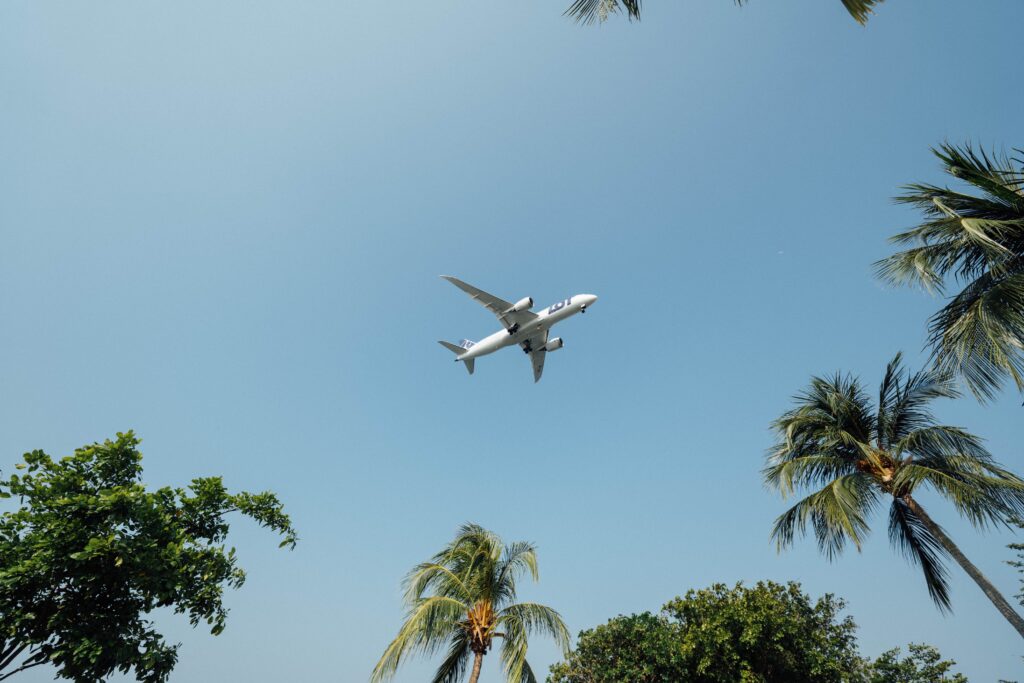Tips for Easing Flight Anxiety When Your Partner is Afraid of Flying
Anxiety disorders can be exhausting, yet are the most common type of disorder, affecting one in six Australians (Australian Institute of Health and Welfare, 2023). But aerophobia, the fear and anxiety surrounding air travel, affects 40 percent of passengers (SMH, 2023) and can start just before take-off, days, or even weeks before a flight.
Take-offs, turbulence, accidents and unpredictable weather patterns are usually the biggest concerns of people who have a fear of flying, however the sense of shame associated with both undergoing and communicating these challenges remains a problem due to the insufficient awareness about mental health.
Despite attempts and advancements in destigmatising this shame, it can still be exceptionally nerve-wracking to open up. Coping with these issues can be daunting when faced individually, but discussing them with a partner demands an extra layer of bravery – calling for a significant degree of vulnerability.

Symptoms of a fear of flying include feelings of flushed skin, nervousness, restlessness, panic, irritability, tiredness, shaking, irregular heartbeat, etc. Recognising these symptoms is crucial because it can pave the way for understanding and support during flying.
It is essential to foster an environment where your partner feels comfortable sharing their feelings. By doing so, you can collectively work towards reducing the stigma surrounding anxiety disorders and ensure that your partner can receive the support they require.
5 Steps to Navigating a Fear of Flying

Create a Supportive Listening Environment
When your loved one grapples with a fear of flying, it’s crucial to provide them with a safe space for sharing without jumping to conclusions. It’s important for them to have an outlet to express their emotions, and through active listening, you provide your partner with the security to voice their fears.
It’s an opportunity for them to feel acknowledged and empathised with. By doing this and grasping the origins of their fear, you can gain insight into your partner’s experiences and learn how best to offer your support.
Cultivate a Judgment-Free Space
Individuals wrestling with a fear of flying often harbour concerns about being unfairly judged or stigmatised as “irrational.” Anxiety can give rise to distressing thoughts and emotions, particularly if they can be seen as novel. Sharing these feelings might make your partner feel exceedingly vulnerable to judgement, even if you’ve been a supportive listener in the past.
It won’t be helpful to pass judgement and make remarks such as “just get over it” or “that’s not a significant issue.” This will invalidate your partner’s experience, and create an environment where they may not be able to express their feelings. Instead, focus on nurturing an environment where they can confide without the extra fear of judgement.
Exercise Patience
A fear of flying, like other specific phobias and anxiety, can fluctuate with varying levels of intensity from day to day. It’s essential to provide your partner with the time and space they need to cope with difficult days or distressing situations related to flying. Although it can be hard to witness your partner struggling with their fear, always remember that these episodes are temporary.
Be attuned to their needs, whether they require personal space or emotional closeness during these challenging times. Reassure them that their feelings are temporary and that you’re there to support them throughout their journey.
Anchor Them to the Present
Assisting your partner in staying grounded during bouts of anxiety can reduce the overwhelming “what if” thoughts, which can otherwise send them into a cycle of apprehension.
Escaping this cycle alone can seem nearly impossible, however you can talk to your partner and identify techniques that empower them to remain anchored in the present.
Whether it entails asking clarifying questions, presenting verifiable facts, or offering comforting physical touch, develop a strategic plan to help your partner regain autonomy over their thoughts and emotions.
Streamline Decision-Making
Recognise that individuals dealing with a fear of flying may find the uncertainty of decision-making daunting due to their anxiety. Extend a helping hand by offering simple and unwavering support when your partner confronts decisions. Acknowledge the influence of anxiety on their ability to make choices, and be a steady presence they can rely on.



